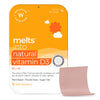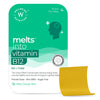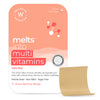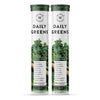How would you like to embrace the arrival of the monsoon season this year? Perhaps you envision venturing outdoors to take in the vibrant greenery, breathing in the earthy scent, and indulging in the symphony of raindrops. Alternatively, you might prefer the comforts of your cozy balcony, where you can savor a steaming cup of coffee while watching the rain gently cascade down your window. However, amidst our shared anticipation, it is crucial to acknowledge that the monsoon season also attracts undesirable microbes and germs, which thrive and propagate in this environment. Unfortunately, these minuscule organisms can wreak havoc on our bodies, giving rise to waterborne illnesses such as typhoid, dengue, cholera, hepatitis, malaria, leptospirosis, chikungunya, and acute gastroenteritis, as well as milder ailments like viral fevers and influenza. The infectious nature of some of these diseases causes further issues, as they can rapidly spread to those in close proximity.
The accumulation of stagnant water, the humid climate, and the compromised quality of the water supply, coupled with sluggish digestion due to climatic changes, serve as primary catalysts for these conditions. Moreover, individuals with weakened immune systems face an even greater susceptibility to falling ill during the monsoon period. Thus, it is imperative that we commit to making informed choices regarding our food and beverage consumption, as our health is at significant risk amidst the monsoon's arrival.
The Monsoon Menu
What food do you crave when it rains? Some hot fryums or fritters with your favorite beverage? However, since water-borne diseases and gastric disorders are in full swing during the monsoon, it's important for us to consume hygienic, immunity-building, and digestion-friendly foods, herbs, spices, and drinks. Let’s see what we need to munch on or sip on and what we need to restrict or avoid.
Foods to eat during the monsoon
During the rainy season, the weather feels extremely pleasant, but you end up dealing with a runny nose, body aches, and an increased body temperature. In such instances, our dear grandmothers come to the rescue with their tried-and-true remedy, Kadha. While its taste may not always be delightful, its effectiveness is undeniable. So what are the magic elements in Grandma’s Kadha? For a long time, our Ayurvedic scriptures have been talking about natural herbs as a treatment for all sorts of ailments, including monsoon-borne illnesses, due to their potent nutrients. Let's look at some of these herbs and other foods that will help us deal with all monsoon blues.
1. Turmeric
Curcumin from turmeric has anti-inflammatory and antioxidant, antifungal, and antiviral properties which help boost one’s immunity and fight off infections. It exhibits antibacterial activity owing to its antibiofilm properties (Inhibiting bacterial growth or causing bacterial death).
2. Tulsi
Apart from the many other health benefits, Tulsi also has antimicrobial properties. It acts as a guard to protect us against harmful pathogens. This herb also acts against waterborne and food-borne pathogens and hence can be used for the preservation of food and as a water purifier.
3. Black pepper
Piperine from black pepper is known to have many health advantages owing to its antimicrobial, antioxidant, anti-inflammatory, antidiarrheal, antispasmodic, antibacterial, anti-fungal, and gastro-protective properties. Piperine inhibits the antiviral enzymes of the Ebola and Dengue viruses, thereby assisting in the prevention of viral infections and dengue fever. It also stimulates the digestive enzymes of the pancreas, enhances the digestive capacity, and slows down gastric emptying (food transit time) thus reducing the chances of diarrhea and other gastric troubles.
4. Citrus fruits
Gear up to welcome the Monsoon with a strong immune system by eating some citrus foods rich in vitamin C like oranges, amla, lemons, grapefruits, strawberries, etc. Vitamin C is known to boost immunity and protect against bacterial and viral infections due to its antioxidant properties. This vitamin also protects the body cells from damaging effects due to stress induced by free radicals (toxins). Consuming vitamin C supplements can be beneficial for those who need a quick dose of immunity boost on the go.
5. Fortified milk & cereals
Shorter hours of exposure to the sun during the rainy season can hamper your vitamin D levels. Vitamin D3, also known as cholecalciferol, is a form of vitamin D that is naturally synthesized in the skin when it is exposed to sunlight. While it's well-known for its role in maintaining strong bones and teeth, it is also necessary for optimal immune cell function, controlling excessive inflammation in the body, and defending the body against invading pathogens. Reduced exposure to sunlight in the monsoon can lead to low vitamin D levels in your body. The most common nutrient added to fortified dairy products is vitamin D. The process of fortification involves adding a carefully measured amount of vitamin D to the dairy product during production. This ensures that each serving of the fortified dairy product provides a consistent and reliable amount of the added nutrient. Fortified dairy products can include various types of milk, such as whole milk, skim milk, or low-fat milk, as well as yogurt and cheese. Unfortunately, vegans are at a high risk of this deficiency. Fortunately, there are vitamin D3 supplements that are a better alternative to improving your immunity during the monsoon season.
6. Eggs & dairy
Having Vitamin B12 during the monsoon could be of great help to your digestive system. During this time, it slows down, making it more prone to gut-related disorders due to food/water-borne illnesses. Vitamin B12 can help the gut flora flourish and function smoothly.
It is also crucial for boosting immunity. It plays a vital role in red blood cell production, ensuring optimal oxygen supply for immune cell function. Additionally, vitamin B12 supports energy metabolism, preventing fatigue and promoting overall well-being. It also enhances immune cell activity, reduces inflammation, and supports nerve function and stress management, all of which contribute to a robust immune system. Good dietary sources of vitamin B12 include meat, poultry, fish, eggs, dairy products, fortified plant-based foods like breakfast cereals and plant-based milk alternatives, as well as nutritional yeast. But for vegans and vegetarians, vitamin B12 supplements are a must in order to prevent deficiencies.
Foods to avoid during the monsoon
While you're piling up the good, don't forget to get rid of the bad. Here’s a list of foods you need to be a little careful with during the rainy season.
1. Seafood
Seafood comes with its own set of risks for infection. During the monsoon season, water from sewage tends to contaminate marine life after heavy rainfall. Hence, avoiding or at least restricting sea foods like prawns and other fish during the rains would be a wiser choice for the prevention of waterborne illnesses.
2. Deep-fried snacks
While the allure of devouring crispy and crunchy fried delicacies during this weather is undeniable, it's crucial to exercise restraint and opt for homemade alternatives. Succumbing less frequently to these indulgences is advisable, as the oil used in street-side or outdoor foods like pakodas is often recycled multiple times, posing potential harm to your digestive system. With the sluggishness our gut experiences this season, consuming such snacks can trigger unpleasant gastric troubles such as bloating, constipation, acidity, or even diarrhea. Prioritizing healthier homemade options will not only satisfy your cravings but also safeguard your well-being.
3. Street foods
Roadside foods are not always prepared using good hygiene practices and the use of contaminated water that isn't subjected to heat can put you at risk of food poisoning or waterborne illnesses like typhoid and cholera. Raw foods also serve as a breeding ground for pathogens (disease-causing agents). Since the rainy season sets the atmosphere right for bacterial growth, the risk of catching food-borne diseases through raw or uncooked foods increases in the monsoon. Cooking, on the other hand, helps destroy these harmful germs and bacteria.
4. Leafy greens
Maybe this is the only season when your mom wouldn’t force you to eat green, leafy veggies. And that’s because the grime, dirt, and environmental humidity due to the monsoon make them a perfect place for fungus and bacteria to grow. While green juices with Bitter Gourd are a safe option, you can also get your dose of veggies with supplements that contain the goodness of these veggies like daily green tablets.
Supplementing nutrition during the monsoon
You are sitting in your office or working from a remote area away from your family. You develop a cold, and you start missing your Grandma’s kadha. What do you do? Good news! You may now order the Kadha online. You may also add essential nutrients to your daily regimen with the help of multivitamins, vitamin D3 supplements, or vitamin C supplements if you are somehow unable to meet those requirements through a natural diet.
General tips to stay healthy during the monsoon
- Practice good hygiene. Wash your hands and all the fruits and veggies thoroughly before use.
- Replace raw salads with steamed, grilled, baked, or stir-fried veggies.
- Eat foods that are light on your stomach for better digestion during monsoons.
- Keep consuming hot brews, stews, or soups to keep the body warm and the germs at bay.
Wrapping up
You are probably loving the weather and can’t wait to dance in the rain. But don't allow the seasonal flu to ruin your plans. Prepare for the monsoon using the advice provided above, and enjoy the rainy season without worrying about getting sick.
References
https://www.medicoverhospitals.in/articles/monsoon-diet
https://ainuindia.org/patient-care/health-tips/diet-tips-in-monsoon-season/
https://www.nhs.uk/conditions/vitamins-and-minerals/vitamin-c/
https://www.wockhardthospitals.com/press-release/tips-to-keep-water-borne-diseases-at-bay
https://accordhospitals.co.in/blogs/foods-to-avoid-during-monsoon-season/































 DOWNLOAD NOW
DOWNLOAD NOW
